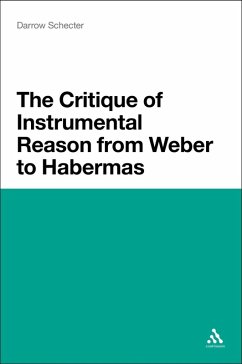What different kinds of reason are possible, and which ones are the most appropriate for a legitimate, as opposed to a merely legitimated state?The book opens with an analysis of Weber as a figure who marks a key moment of sociological transition. Weber articulates a distinctly different view to Enlightenment thinkers who believe in the capacity of reason to improve society and emancipate humanity from ignorance and domination. Weber signals that the institutionalization of the instrumental reason particular to industrial society might actually be an effective tool in the struggle for social supremacy. He notes that in comparison with charismatic and traditional legitimation, modern forms of legal-rational legitimation are de-personalised, anonymously bureaucratic, and much more difficult to combat.The book then looks at various responses to Weber's diagnosis, from Lukács and Benjamin to Horkheimer, Adorno, Heidegger, Arendt, Simmel, Foucault and Habermas. The study culminates with a sociological reading of critical theory that draws together Adorno's concept of non-identity with Habermas on communicative reason and Luhmann on social complexity and differentiation.
Bitte wählen Sie Ihr Anliegen aus.
Rechnungen
Retourenschein anfordern
Bestellstatus
Storno









